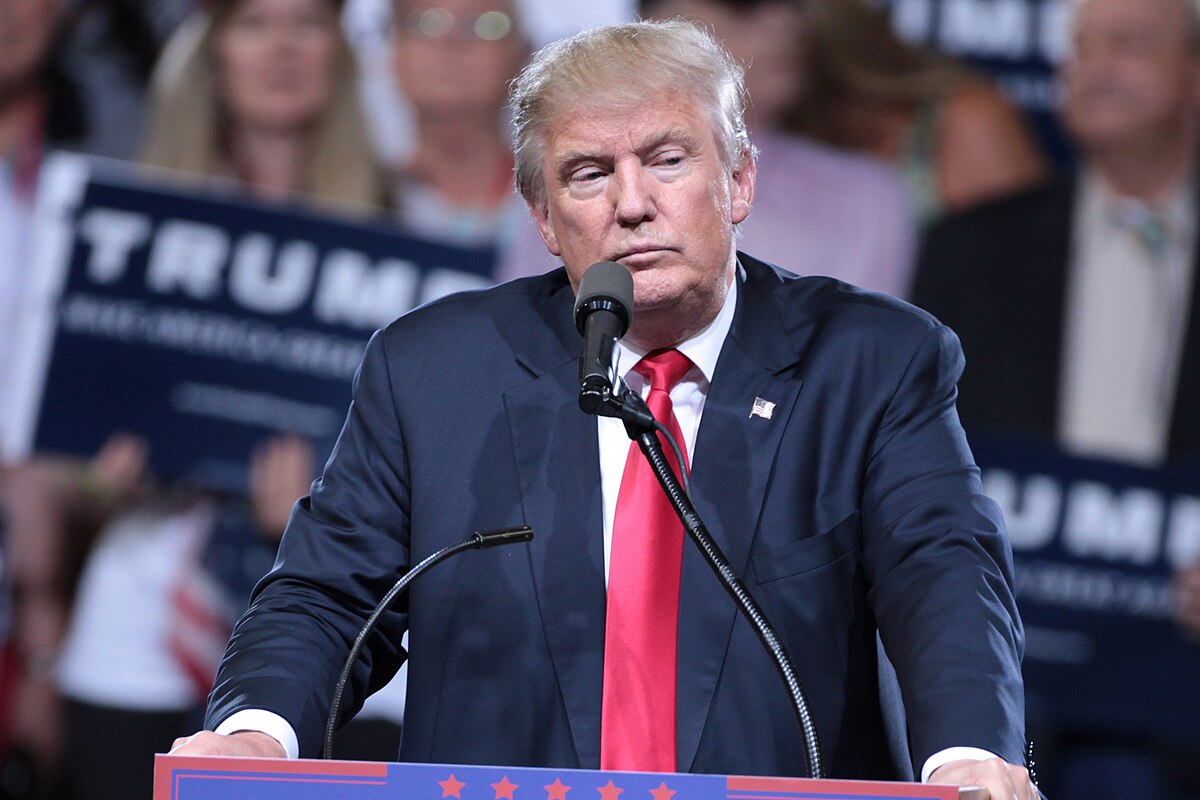- 14 3402-5578
- Rua Hygino Muzy Filho, 737, MARÍLIA - SP
- contato@latinoobservatory.org
 Gage Skidmore from Peoria, AZ, United States of America
Gage Skidmore from Peoria, AZ, United States of America
In Donald Trump's recent interview with NBC, the president-elect reaffirmed his commitment to controversial policies related to immigration, including the intention to end citizenship by birthright in the United States. This policy, guaranteed by the 14th Amendment of the Constitution, confers citizenship to all people born in the country, but Trump argued that it should be changed, suggesting the possibility of using executive action to implement the change. However, he did not offer concrete details on how he would get around the legal and constitutional hurdles involved, especially considering that amending the Constitution would require the support of three-quarters of the states. Trump also made an incorrect statement by stating that the US is the only country to offer citizenship by birth, ignoring other countries, such as Brazil and Canada, that adopt the same practice.
In addition to this issue, Trump addressed the Dreamers, young people brought to the country as children who grew up in the United States and whose immigration status remains uncertain. He acknowledged that these individuals are deeply integrated into American society and stated that he wants to work on a legislative plan to solve the problem. Despite criticizing Democrats for hindering progress in the area, Trump has shown a willingness to collaborate to reach a bipartisan solution, emphasizing that many Dreamers are now adults with successful jobs or businesses.
On deportations, Trump reaffirmed his intention
to prioritize the removal of people with criminal records, but said he plans to
expand the policy to cover other undocumented immigrants. He argued that the
United States needs clear rules and regulations, suggesting that the
immigration process should be more selective, focusing on applicants who
respect the laws and identify culturally with the country. Despite the rigorous
tone, he highlighted the need for balance, recognizing the emotional and
practical difficulties of these decisions.
It is important to note the support of Republican leaders for Trump's initiatives, including Bernie Moreno, newly elected as the first Latino senator from Ohio. Moreno pointed out that the presidential election was largely influenced by immigration and economic issues, emphasizing the urgency of reforming the immigration system in the first months of government, according to a publication by Politico.
The interview reveals both the continuity of
policy priorities already associated with Trump and an attempt to adopt a more
conciliatory tone in specific areas, as in the case of the Dreamers. However, the proposal to end birthright citizenship faces
serious constitutional and political challenges, while plans for mass
deportation and tightening immigration rules could deepen social divisions and
alienate immigrant communities.











